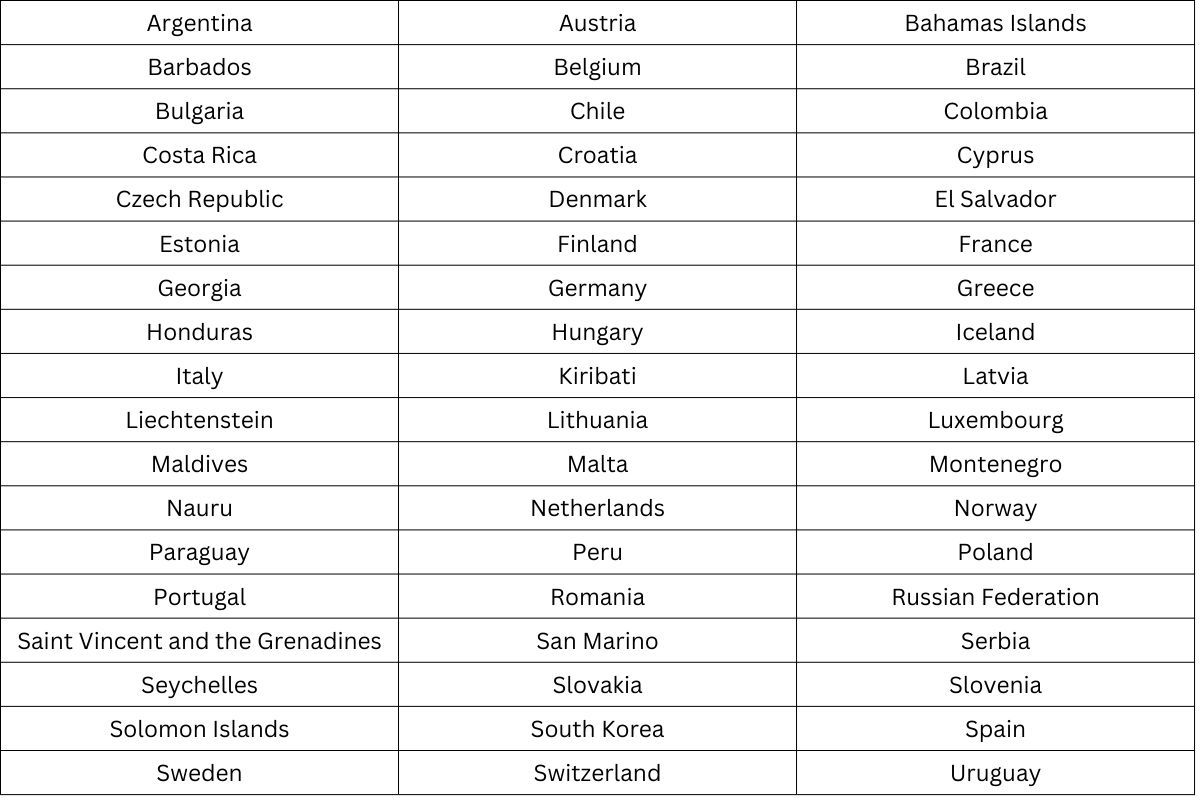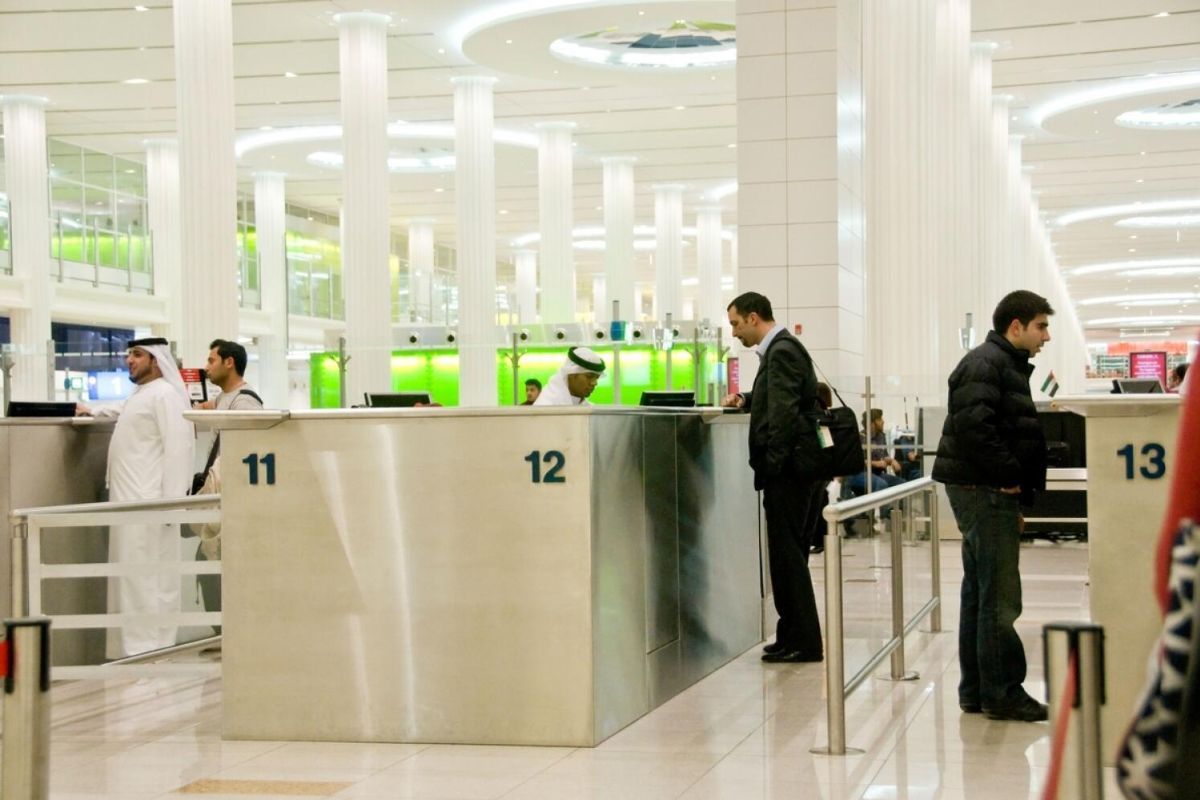In the United Arab Emirates (UAE), the immigration process is defined by various types of legal documents that allow foreigners to enter, stay, and live in the country. Two key documents in this process are the Entry Permit and the Residence Visa, each serving distinct functions and purposes.
Understanding the difference between these two documents is crucial for anyone planning to visit or move to the UAE, as each has its own application process, legal implications, and benefits. The Entry Permit is the starting point for a short visit, while the Residence Visa is the key to establishing a longer-term presence in the country.
ENTRY PERMIT
An entry permit is a document that allows a foreign national to enter the UAE, primarily to complete the process of obtaining a residence visa. This permit has varying validity periods:
- It's valid for 2 months for normal and green residence visas, which last from 1 to 5 years.
- For golden visas, which are more prestigious and offer longer stays, the entry permit allows for 6 months of multiple entries.
For other visitors who are not seeking residence, the entry permit serves different durations based on the visit's purpose:
- For short visits, such as for tourism or business, attending events, visiting family, or medical treatment, this permit is known as a visit, tourist, or transit visa.
- The validity of these permits varies. A transit visa can last just 48 hours, while a long-term tourist visa for multiple entries can remain valid for as long as five years.
In the United Arab Emirates (UAE), the requirements for entering the country can vary based on your nationality.
Citizens of GCC Countries:
- Individuals from nations within the Gulf Cooperation Council (GCC) don't need a visa to enter the UAE. They can enter by presenting a valid GCC passport or national ID card.
Visa Upon Arrival:
Certain nationalities are privileged with the ability to obtain a visa upon their arrival in the UAE. The duration of the visa depends on the nationality:
- 30-day Visa on Arrival: The following nationalities are allowed to get a visa upon arrival which is valid for 30 days and can be extended for an additional 10 days.

- 90-day Visa on Arrival: There are also countries whose citizens can get a visa upon arrival that's valid for 90 days. They are the following:

Special Case for Indian Citizens:
- Indian citizens with a normal passport who have either a valid visit visa, a green card from the USA, or a residence visa from the UK or EU, are eligible for a 14-day visa on arrival. This is conditional on the visa or green card being valid for at least six months from the date of arrival in the UAE.
All Other Nationalities:
- If your country is not on the list for visa-free or visa-on-arrival entry, you will need to secure an entry permit before you travel to the UAE.
- The type of entry permit required depends on the purpose of your visit, whether it's for tourism, a visit, transit, or work.
Requirements for an Entry Permit
To obtain an entry permit for the UAE, the following criteria must be met:
- A sponsor is necessary for the application of your entry permit, which can be:
- A citizen of the UAE
- An expatriate holding a valid UAE residency permit
- An airline that operates within the UAE
- A hotel or travel agency based in the UAE
- A governmental body
- A private sector company or an entity within free zones in the UAE.
- Those applying for entry permits must possess a valid passport, which should remain valid for no less than six months.
- Individuals with a visa ban, due to reasons such as prior deportation or specific prohibitions, cannot enter the UAE or obtain new employment there. If someone has been previously expelled or currently has an entry ban, they would require special authorization to re-enter the country.
Steps to get an Entry Permit
To apply for an entry permit to the UAE, one needs to follow these steps:
- Sign up for the UAE Pass to start the application process.
- Complete the application form and pay the necessary fees.
- After processing, the entry permit will be issued.
Conditions for Service:
- The applicant's passport must have at least six months of validity.
- All service requirements, such as a medical exam and insurance, must be fulfilled within the given timeframe to avoid request cancellation.
- Applicants must adhere to the instructions and requirements provided during the transaction process to prevent cancellation.
Types of Entry Permits and their Required Documents
There are multiple categories of entry permits for the UAE, each tailored to the specific intent of your visit. You should select the category that aligns with the purpose of your travel.
Tourist Visit:
- Financial guarantee document.
- Health insurance.
- Tourism program statement.
- Recent personal photo with a white background (4/6 size).
- Passport copy.
- Bank statement showing a balance of $4,000 or its equivalent within the past six months.
Multi-Tourist Visa (5-Year):
- Similar documents to the tourist visit.
- Financial guarantee is waived for tourists under 18 years of age.
Visiting Relatives/Friends or Business Missions:
- Proof of kinship or justification for the visit.
- Copy of the residence permit if applicable.
- Passport copy, financial guarantee, health insurance, and travel ticket.
- Work-related documents (employer's certificate, work contract, or letter).
Exploring Job/Business Opportunities:
- Certificate indicating university ranking for job explorers.
- Certificate of skill level from the Ministry of Human Resources for business explorers.
- Academic qualifications, passport copy, financial guarantee, health insurance, and travel ticket.
Medical Treatment Visits:
- Approved medical report and letter from the health facility.
- Documents for visa issuance for both patient and companion.
- Health insurance, travel ticket, recent photo, passport copy, and financial guarantee.
RESIDENCE VISA
A residence visa in Dubai is required for non-UAE nationals who intend to live, work, or study in Dubai for a prolonged period. The visa is essentially a permit to legally reside in the country beyond the duration offered by an Entry Permit.
Types of Residence Visas
Golden Visa
The Golden Visa of the UAE is a renewable long-term visa that offers foreign professionals the opportunity to live, work, or study in the UAE while enjoying several exclusive advantages. These benefits include:
- A six-month multiple-entry visa to finalize the residence process.
- Options for either a 5-year or 10-year renewable residence visa.
- Independence from a national sponsor.
- Permission to remain outside the UAE for over six months without losing residence visa validity.
- The eligibility to sponsor family members, such as spouses and children of any age.
- The freedom to sponsor an unlimited number of domestic workers.
- Assurance that in the event of the Golden Visa holder's death, their family can remain in the UAE until their visa expires.
Residence Visa for Employment in the UAE
To work in the UAE, individuals can obtain one of three types of visas: the standard work visa, the green visa, or the domestic worker visa.
- The standard work visa is available to individuals employed within both government and private sectors.
- The green visa, which is granted to skilled workers, has a validity of 5 years.
- Lastly, visas designated for domestic helpers are also available for those in such employment categories.
Residence Visa for the Retired
Residents in the UAE who are retired and over the age of 55 have the option to apply for a 5-year long-term visa. To qualify for this retirement visa, the retiree must fulfill the following requirements:
- Have a minimum of 15 years of employment experience, which could have been accumulated within or outside the UAE, or be at least 55 years of age at retirement.
- Possess property in the UAE worth at least AED 1 million, maintain financial savings of no less than AED 1 million, or prove a regular monthly income of AED 20,000 (or AED 15,000 for Dubai residents), along with presenting a six-month bank statement.
This visa has a 5-year validity and can be renewed as long as the individual continues to meet the necessary conditions.
Also Read: All You Need to Know About Extending Your Tourist Visa in Dubai
Residence Visa for Conducting Business in the UAE
The Green Visa for investors is granted to those setting up or engaging in business ventures in the UAE, extending the former two-year residency visa. Criteria for eligibility include:
- Receiving an endorsement from the ICP based on the investor rating system in place.
- Demonstrating evidence of the investment (for investors or partners with multiple licenses, the aggregate invested capital is considered).
- Obtaining consent from the relevant local authorities.
Residence Visa for Studying in the UAE
In the UAE, student visas are issued for one-year periods and can be renewed annually with proof of ongoing education. Students can be sponsored by either their resident parents or their educational institution.
- Male children can be sponsored by expatriate residents up to age 25, provided they are enrolled in higher education.
- Female children can be sponsored without age restriction until they marry.
- University Student Affairs offices provide visa assistance.
Residence Visa for Family Members
In the UAE, valid residence visa holders, both employers and employees, can sponsor their family members for residence visas. Employees can sponsor their families if they earn at least AED 4,000, or AED 3,000 with accommodation provided. Adults over 18 must pass a medical fitness test to be eligible.
Key points for family sponsorship include:
- Valid residence permits /visa holders can sponsor their families to live in the UAE.
- The minimum salary requirement for sponsorship is AED 4,000 or AED 3,000 with accommodation.
- Family members over 18 must pass medical fitness tests at approved UAE health centers.
- A mother can sponsor her children under special conditions.
- Sponsors must apply for dependents' visas within 60 days of their entry to the UAE.
- Parents can be sponsored on a yearly basis, regardless of the sponsor's visa duration.
- The sponsor's profession does not affect eligibility for family visas.
- Those with medical unfitness will be denied a visa, except individuals with dormant tuberculosis, who may receive a one-year residence certificate with treatment conditions.
Each of these visas has specific eligibility criteria and requires certain documents, such as a valid passport, proof of employment or enrollment in an educational institution, financial guarantees, health insurance, and others. The visa process typically involves a health check, a biometric capture, and the issuance of an Emirates ID card.
It is crucial to obtain the latest and most accurate information from official sources such as the General Directorate of Residency and Foreigners Affairs (GDRFA) or the official portal of the UAE Government, as the laws and requirements for a residence visa in Dubai can change.
Validity of Residence Visa
The validity of UAE residence visas can be 1, 2, or 3 years for sponsored visas, and up to 5 or 10 years for certain types of unsponsored visas, including long-term and retirement visas. Dependent visas will not exceed the validity of the sponsor's visa.
Individuals aged 18 and above must undergo a medical fitness test, a security check, and apply for an Emirates ID card when applying for a residence visa.
Required Documents For Residence Visa
The required documents for a residence visa application typically include:
- A recent personal photo against a white background.
- A copy of the dependent's passport.
- Receipt of the Emirates ID application.
- Housing lease contract or proof of property ownership.
- A copy of the sponsor's passport with a valid residence visa.
- The sponsor's employment contract.
- A medical fitness certificate for those above 18.
- An entry permit.
- Birth certificate for children.
- The mother's residence permit (for newborns).
- Medical insurance or health card.
- Divorce or death certificate (if applicable).
- Proof of housing (for divorced women and widows).
- Proof of income (for divorced women and widows).
- An educational certificate for students specifying the study duration.
Benefits of having a UAE Residence Visa
Holding a UAE residence visa provides the following advantages:
- Ability to open personal bank accounts
- Eligibility for financial services
- Option to obtain a driving license
- Use of government healthcare services and eligibility for health insurance
- Enrollment of children in both public and private schools
- Opportunities to work and engage in business activities
- Visa-free travel to select countries (verification with respective foreign embassies in the UAE is advised).
In conclusion, an Entry Permit and a Residence Visa in the UAE serve distinct purposes and are part of the process for legally residing in the country. An Entry Permit is a preliminary document that allows a person to enter the UAE for a specific purpose, such as tourism, transit, work, or study and is usually valid for a short duration. It is a prerequisite for obtaining a Residence Visa but does not grant the holder the right to reside or work in the UAE long-term.
A Residence Visa, on the other hand, is issued following the arrival in the UAE with a valid Entry Permit and after fulfilling certain requirements, such as a medical test and the issuance of an Emirates ID. This visa allows the holder to live, work, or study in the UAE for an extended period, typically ranging from one to ten years depending on the type, and can be renewed. It confers a more permanent status compared to the Entry Permit and comes with various benefits, such as the ability to open bank accounts, access healthcare services, and sponsor family members for their residence visas.
Also Read:














